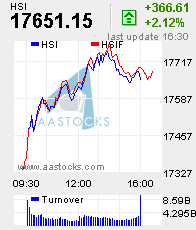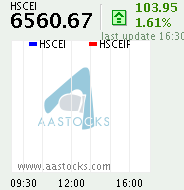Balance essential in fixing exchange rate employed by the Hong Kong Monetary Authority. Judge the Cost and Benefit of the Fix and the Float!
Monetary Authority Chief Executive Joseph Yam says the authority has been refining the Linked Exchange Rate system over the years.
I recall that short-term interest rates being pushed to very high levels in 1997 when the Asian financial crisis began. The overnight Hong Kong Interbank Offered Rate (HIBOR) soared up to beyond 200% in 1997. The Hang Seng Stock Index dropped and the property values lost drastically as the next. The economic aftermath is surely due to the high volatility of interest-rate. It is a painful experience of the adoption of the linked-rate anchor by the Govt. It inevitably brought pains to us as our economy being damaged in the following years(as the market rate of interest rises, the capital value or the wealth will drop).
The market mechanism of the liquidity and foreign-exchange demand and supply in our territory is that : when there is capital outflow, interest rates will increase to reverse the outflow and vice versa. In response to the painful lesson of the 1997 turnmoil the HKMA tried to take some measures. It had brought some changes at the end of the last century : re-define the Monetary Base and make it transparency as much as possible ; allow commercial banks holding Exchange Fund papers to access liquidity through the Discount Window of HKMA. Also, it was found further structural changes in anchoring exchange-rate expectation on the strong side of the linked-rate. The strong-side convertibility undertaking at $7.75 per US$ was introduced. These measures were welcome by the public. This implies allowing the rooms of fluctuation of the linked-rate. Nevertheless, it will then limit the interest-rate volatility as it is the result of foreign-exchange market DD and SS force under the principle of peg-rate.
However, could Hong Kong still face another monetary shock in the future?
Will our wealth be vapourized again in the future for similar historical impact come again?
I still worry about that. For the two evils, deflationary depression is more horrible than inflationary spiral.
Anyway, I think the economic outlook is still positive as far as the exchange-rate stability be maintained through the linked-rate system.
Economic Notes : Fixed or Floated Excange Rate?
In theory, an advantage of floating E.R. is that it may allow for the nominal exchange rate to adjust continuously and precisely so as to keep the real exchange-rate at equilibrium WITHOUT any governmental intervention(an ideal situation if achievable).
The advantage of a fixed E.R. is that it provides a clear economic situation for making judgements about costs and prices esp. dealing with the foreign buyers and sellers as it provides assurance of a stable E.R.
However, the disadvantage is that the entire burden of cost-price adjustment falls on domestic costs and prices. General price level is likely to be more volatile for an economy that much tied with the rest-of-the-world. Serious Inflation or deflation problems are the likely results.
Actually this peg-rate anchor much requires upward and downward flexibility of costs and prices in our economy!
Reference : "再 論 港 元 危 機" http://www.infowide.com.hk/hkdollar2.htm
http://wongtc.blogspot.com/
Copyright Reserved by tcwong©










